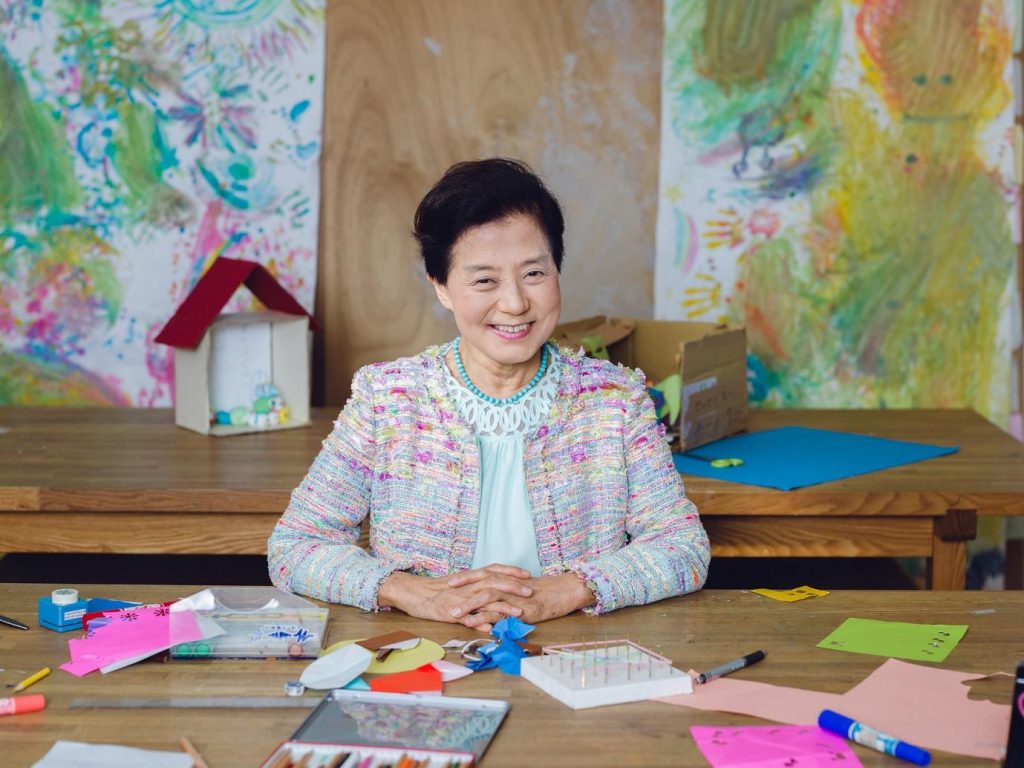“The importance of women being able to work as well as raise children left an indelible impression on me”
According to The Economist, “women make up only a small percentage of top philanthropists in Asia, but their influence is disproportionately large as they transform the nature of philanthropy itself”. Recounting the activities of businesswomen in Asia, philanthropy is a common phenomenon. Asia’s women are natural given to philanthropy and in many cases most of the businesswomen in Asia started their journey in business with the mind-set of impacting their society and helping the poor.
The impact inspire category of Amazons Watch Magazine is a platform that mirrors the impact and philanthropic activities of women in developing nations while setting examples and inspiring others to get involved. In the same vein, we bring you the story of Yoshiko Shinohara, Japan’s first self-made woman billionaire who began her journey as a business woman in order to provide better jobs for women in Japan.
Shinohara was born in 1934, to a school headmaster and a midwife. Growing up during the World War II, Shinohara lost her father when she was eight and was raised by her single mother, who never remarried. After high school she got married at the age of twenty but left the marriage shortly after the wedding. She told Harvard Business Review in 2009 that soon after her wedding, she realized that she would rather not be married, and that her husband was not the right person for her. So she decided she had better quit the marriage as soon as possible.
Shinohara was just a high school holder when she left her marriage, she thought about what she was going to do with her life. She was not satisfied with the kind of jobs that most women in Japan were engaged in at the time, understanding that she could do more she decided to leave for England. On getting to England she was inspired on seeing women working as temps and this was different from the work system in Japan. She worked as a secretary in England and also moved to Australia working as a secretary too.
In 1973, she was back to Japan with a high school degree and secretarial experience from two different continents, but again Shinohara was still unsatisfied with the job prospects in Japan. But this time was different, having experienced the temping system in England and Australia, she decided to introduce the system in Japan by starting her own firm, Temp Holdings.
When Shinohara started her company, she had not deliberately considered the challenges and oppositions that she might face from the society and authorities in Japan because at the time, Japan was running the lifetime employment work policy and the law bans private companies from engaging the temp system. She was often summoned by the Japanese Ministry of Labor for query but Shinohara was not ready to give up on her company or the temping system.
Temp Holdings started as an all women Japanese temporary staff company, in Shinohara’s small apartment in Tokyo. She told Forbes Asia that “Education and women working always were in the back of my mind,” “The importance of women being able to work as well as raise children left an indelible impression.”
It was difficult for the company to pull through without disturbance from the authorities plus the slow pace of the business. At some point Shinohara told Forbes Asia that she had to teach English language at night to make ends meet. After a while the law was changed, accommodating the temp into Japan work system.
Temp Holdings moved into its first office space after five years, however, the company was still plagued with growth in terms of sales, so Shinohara taught of employing male staff into the system but when she made the suggestion to the managers refused.
In those days, temp companies where seen as an all women company because only women were tempstaff in the early days.
Fortunately, one of the branches employed a male staff and there was a boom in sales growth. It then dawned on Shinohara that the right mix of men and women was the trigger she needed to move Temp Holdings forward. She took off the company’s look of all women tempstaff and began employing male temps, this launched Temp Holdings at the forefront of Japanese business scene and in 2008, it was listed on the Tokyo Stock Exchange.
She continued to thrive at the business scene of Japanese until 2016 when she finally retired to concentrate on her philanthropic work after donating USD140mil worth of her company’s stock to fund scholarships for students studying to become nurses, social worker or day-care staff, under the Yoshiko Shinohara Memorial Foundation.
Miracle Nwankwo





Comments are closed.